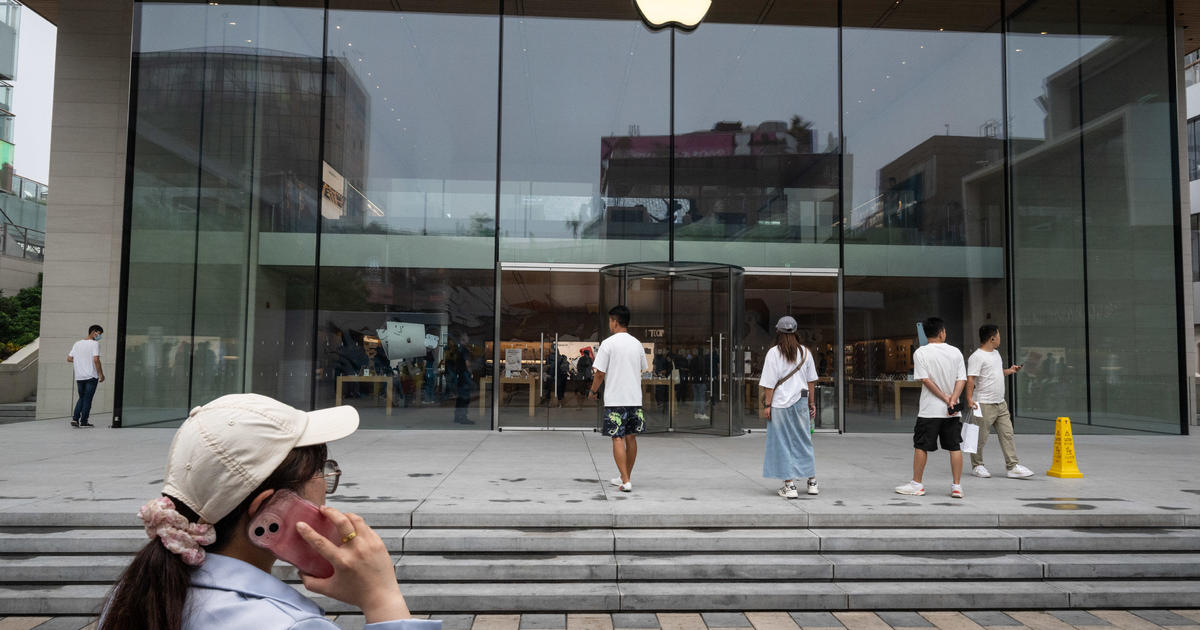Apple’s gold-plated stock experienced an unprecedented setback this week, as reports emerged that China is banning government employees from using iPhones. This has caused the technology giant’s market value to decline by approximately $200 billion.
On Thursday, Apple shares fell by 3%, contributing to a decline of more than 5% for the week. However, there was a slight recovery in early trading on Friday. Despite this recent slump, Apple’s stock has risen by almost 38% this year, primarily due to the success of the company’s services such as Apple Pay and iCloud storage.
The news of the iPhone ban was first reported by the Wall Street Journal, which cited anonymous sources. According to these sources, China is instructing officials at central government agencies to refrain from using iPhones or other foreign branded phones. The ban expands on previous restrictions on using iPhones for work purposes. The Financial Times also confirmed the ban, citing six unnamed sources at government institutions and state-owned companies.
“This ban poses a significant challenge for Apple as China is its largest international market, accounting for about 20% of its revenues,” said Victoria Scholar, head of investment at interactive investor, a U.K. investment platform.
Apple did not respond to requests for comment regarding the ban.
When Chinese Foreign Ministry spokesperson Mao Ning was asked about the ban at a daily briefing in Beijing, he did not directly address the issue. He only stated that “products and services from any country are welcome to enter the Chinese market as long as they comply with Chinese laws and regulations.”
Growing tensions
Tensions between the U.S. and China have been escalating. In a recent executive order, President Joe Biden imposed restrictions on U.S. high-tech investment in China. This move reflects the intensifying competition between the two largest economies in the world.
White House officials have stated that President Biden will use the annual G20 summit as an opportunity to present a proposition that would increase the lending power of the World Bank and International Monetary Fund by $200 billion. The aim is to emphasize that the U.S. and its allies are superior economic and security partners compared to China.
The reported ban on the iPhone comes at an inopportune time for Apple, as the company is preparing for its latest product launch on September 12th. During this event, it is expected that Apple will unveil its latest smartphone, the iPhone 15.
A teaser for the livestream of the event, named “Wonderlust,” has been released on YouTube, providing no specific details. Rumors are circulating that significant changes are in store for the iPhone, including a switch from Apple’s Lightning connector to the USB-C plug. Competitors have already started adopting this plug, partly in response to a European Union mandate.
Despite the iPhone restrictions imposed by China, some analysts believe that the impact on Apple’s sales will be minimal. Wedbush analyst Dan Ives stated that Apple’s share of the smartphone market in China has increased significantly in the past 18 months. He estimates that the ban on government employees using iPhones would only result in a reduction of approximately 500,000 iPhone sales in China. This is a fraction of the 45 million phones that Wedbush expects Apple to sell in China over the next year.
Faster Huawei phone
In addition to the iPhone ban, Apple is also facing competition from Chinese tech giant Huawei. Huawei recently released its latest flagship smartphone, the Mate 60 Pro. The phone reportedly offers comparable power and speed to the iPhone and has been selling rapidly in China. Concerns have been raised that China has found ways to circumvent U.S. restrictions on Huawei, allowing it to acquire high-tech components that were previously limited. Analysts from Capital Economics believe that this indicates progress on China’s part in overcoming export controls imposed by the U.S.
Denial of responsibility! Vigour Times is an automatic aggregator of Global media. In each content, the hyperlink to the primary source is specified. All trademarks belong to their rightful owners, and all materials to their authors. For any complaint, please reach us at – [email protected]. We will take necessary action within 24 hours.


